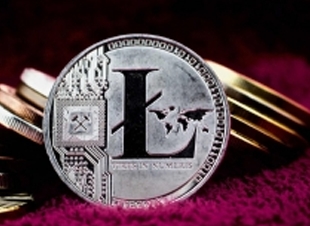
Features of Cryptocurrencies
There are certain features that are characteristic of many cryptocurrencies. Let us take a look at some of these features.
Trustless
Cryptocurrencies are said to be trustless because no single entity has authority over the system and consensus is achieved between participants who do not have to trust each other. Fiat currencies, such as the US dollar, differ in that they are currencies which are established as money, often by government regulation. In virtually all cases, the central body becomes the weakness that leads to the instability of the currency.
Cryptocurrencies are part of an ecosystem that validates what the other part is saying without needing to trust each other. For example, when a Bitcoin transaction is broadcast, all nodes receive it and will need to verify that the signatures are authentic. If the signatures are not authentic, the transaction is discarded.
Each individual on the network gets a copy of the ledger, hence, there is no need to trust an organization or third-party. With blockchain technology, you are minimizing the amount of trust required from any single actor in the system. This is done by distributing trust among different actors in the system via an economic game that incentivizes actors to cooperate with the rules defined by the protocol. The incentivization of network actors, known as miners or validators, ensures the crypto process runs smoothly. With the incentives, miners are encouraged to ensure that all transactions on the network are executed, and no hacker can come in and interrupt network activities with ease. As a result of this process, miners can ensure authenticity and that no double-spending is taking place.
Immutable
The simple meaning of immutable is that something cannot be undone or changed. Immutability has become an integral part of blockchain technology and cryptocurrencies. Cryptos are immutable because it is highly improbable or difficult to rewrite history. That is, it is impossible for another person, other than the owner of a private key, to transfer funds, and all transactions are recorded on the blockchain ledger. Also, immutable transactions ensure that no entity, such as the government, can manipulate, replace, or falsify data stored on the network.
With traditional financial institutions and banks, we trust them not to fabricate or manipulate our transaction records. This means that we have to trust the financial institutions to deliver top services and to fix any damages in case of fraudulent transactions.
When dealing with cryptocurrencies, you do not have to place your trust in any single entity such as your financial institution. This is because there is no third party for us to trust to handle our transaction records. Thus, our records are made public and can never be changed (immutable). While it is not impossible to alter the transaction ledger, the cryptographic security makes it really difficult to pull off. It might need you to comprise the entire network of crypto users to achieve such a feat.
Decentralized
Since decentralization is a big part of the cryptocurrency community, we have to understand why people throw the word around and what it means for investors. Several crypto leaders have touted decentralization as one of the most influential features of cryptocurrencies. Cryptocurrencies are architecturally decentralized in the sense that there is no central infrastructural point of authority. Their centralization comes from a commonly agreed state by the users, with all systems behaving like a single computer.
Cryptocurrencies are fault-tolerant because decentralized systems are less likely to be victims of accidental failure. This is because they rely on networks of separate components. Cryptos are also resistant to attacks as decentralized systems are more complicated and expensive to attack. It is expensive to attack, destroy, or manipulate these systems because they have zero vulnerable central points that can be attacked at lower costs than the entire system.
Cryptocurrencies are also resistant to collusion, as it is almost impossible for members of the network to act in ways that benefit them at the expense of other members. With governments and corporations, individuals collude in ways that benefit them at the detriment of others.
Cryptos are decentralized because no individual or consortium can affect the supply of the currency or exert massive influence over it without getting the majority to support them.
Deflationary
The top cryptocurrencies and several others have a maximum supply, which makes them deflationary in nature. As demand for cryptocurrencies increases, the limited supply means that the value of the coins will likely skyrocket. Bitcoin, Ethereum, Monero, and most other leading cryptocurrencies, have pre-defined rules for how many coins or tokens will ever be in existence. This means that they are predictable by nature, and their values are expected to keep increasing over time.
















